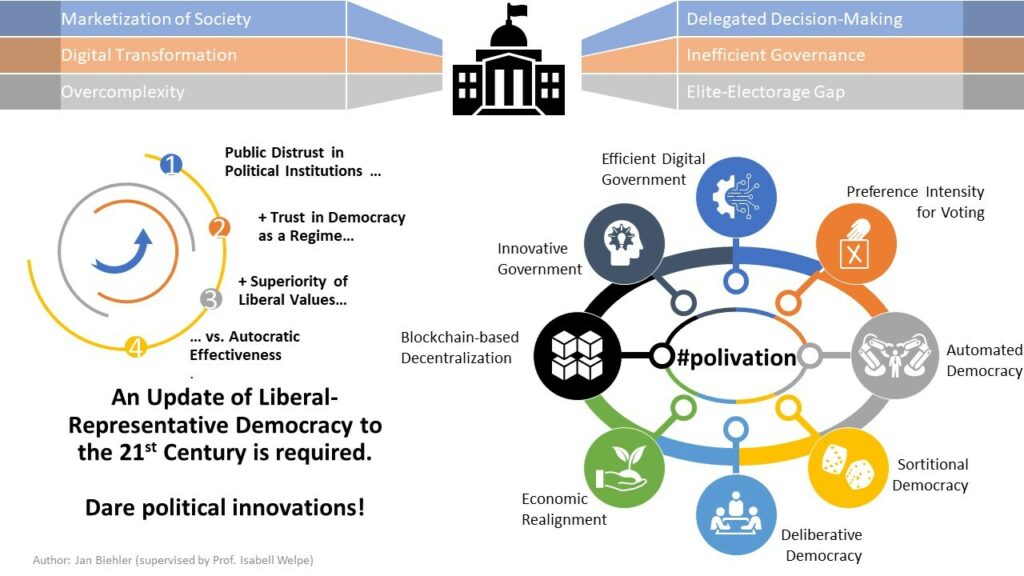RESEARCH OF THE TEAM
#polivation aims at accelerating an evidence-based discourse on how liberal-representative democracy could adapt towards changing realities. See the body of research papers written by members of the Disrupting Politics team
Disrupting Politics: Why Transformation Needs Political Innovation
This contribution delivers groundwork for the project „Disrupting Politics“: The digital transformation and the neoliberal marketization of all spheres of public life are identified as core challenges undermining political institutions and creating public demands liberal-representative democracies have not adapted to yet. Together with inherent defects of the representative pillar – an increasing elite-electorate gap and decreasing responsiveness and accountability of political actors – this affects the legitimacy of liberal-representative democracy negatively. The contribution proceeds with typologizing almost 90 political innovations (see also database) that promise to cure inherent and exogenous defects of liberal-representative democracy with a specific focus on increasing the effectiveness of its political institutions. The contribution originates from the Master Thesis of Jan Biehler in the program „Politics & Technology“ at the Technical University Munich.

Download the Article as a PDF here : Biehler_2021_polivation Disrupting Politics
Lazy or Active Citizens in Liberal-Representative Democracy? (Re-)Assessing Antecedents of Proclivity towards Political Participation
Many political innovations demanding for more political participation build on the implicit assumption that citizens have intrinsic motivation and a proclivity towards political participation and are only daunted by some dysfunctionalities of the current representative system and its discouragement of political participation. However, if this premise does not hold, next to innovations operationalizing participatory democracy, political innovations which do not require the citizen for adapting liberal-representative democracy to the 21st century should receive more attention for experimentation and in public and academic discourse. This contribution explores whether increased means for political participation would be also exploited by (groups of) citizens or whether (groups of) citizens are rather “lazy” regarding political participation where elections are already enough of political engagement, and finds that in Europe rather the latter is the case with more than half of the European population is at most hardly interested in politics. The contribution originates from a research paper of Jan Biehler in the program „Politics & Technology“ at the Technical University Munich.
Download the Article as a PDF here : Biehler_2021_#polivation Participation and Society
